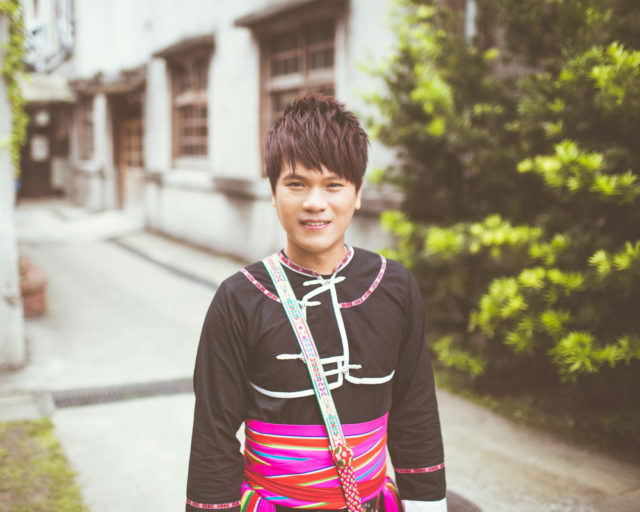
Suming Rupi is an Amis Taiwanese musician who has played a handful of shows around the world in his fifteen years as a performer, including Glastonbury and Fuji Rock Festival. He is kind, humble and generous with his time as AU Review sat with him at Barunga Festival over the Queen’s Birthday long weekend – further expanding the festival’s connections with indigenous cultures across the world.
Suming is part of the Amis tribe, one of the sixteen government-recognised tribes of indigenous people in Taiwan who experience a similar level of erasure as our own indigenous population here in Australia. We were joined by PR manager, friend and incidental translator, Nunung, to help bridge the gap.
“When he came to Taipei for university, he faced a lot of people that asked his identity, of ‘who you are’ [sic] and “Oh wow, you’re indigenous”.”
Suming started to question himself and exploring his indigenous identity, which lead to him writing songs in his mother tongue and introducing Amis culture to mainstream Taiwan. While his grandparents and parents experienced much discrimination for being indigenous, Suming reflects on his luck and how Taiwanese society had evolved enough to be aware of indigenous rights and to attempt to embrace indigenous culture. This fact is clear through his level of celebrity in Taiwan.
That said, while English and mainstream Chinese languages are taught in schools, there is little time devoted to ‘mother tongue’, prompting Suming to write music of more modern pop and rock genre in Amis language to encourage general interest in the Amis language. This promotes youth interest without intimidating or pressuring them to participate in indigenous culture.
For those unfamiliar, Suming and his entourage performed in some of the most elaborate and engaging costumes, actually formal Amis attire. When prompted, Suming shyly revealed that while he usually dresses in Amis clothing to perform, he very rarely dresses that formally – a mark of respect to the Bagala people of Barunga for having him on their land. For Suming, it is not just that he had been given the opportunity to perform in his own language in Australia for the first time, but that he is able to do so on the ancestral land of the Bagala people during a festival that celebrates the local indigenous cultures in the area. The extent of cross-cultural appreciation is clear as both Suming and Nunung appear comfortable and smiling ear-to-ear every time they are spotted. They are here to learn as much as we are here to learn from them.
Despite the clear language barrier, Suming’s passion for indigenous rights extends to the indigenous rights within Australia and the impact of this years’ Barunga Festival marking 30 years of a symbolic (and only symbolic) treaty signing between the Australian Government and the people of Barunga is not lost. Through this festival and its’ organisers, Suming is beginning to understand the dynamic between indigenous Australia and the rest of the population. In a mindset unique to those who are used to balancing lives between different cultures, it is made abundantly clear that Suming is willing to foster a relationship with the Northern Territory over a number of years.
When he’s not touring the world, Suming is an actor and an activist for all indigenous Taiwanese cultures. Suming runs his own Amis Music Festival which recently showcased indigenous Australian band B2M (Bathurst to Melville) performing alongside the Bunun Children’s Choir (Taiwan). Prompting the beginning of a working relationship and exchange with Northern Territory’s Skinnyfish Music and Artback NT. He also makes use of his celebrity to publicly draw media attention to indigenous issues, even sneaking in social justice messages such as issues with ancestral lands and education of indigenous languages into awards speeches at the Golden Melody awards, ‘like the Grammy’s in Taiwan’. While he admits the media can be selective in what gets presented to the public, he stands strong and makes his presence known by attending rallies independently with friends. So far it is paying off, with a noticeable social change and an increase in people becoming aware, or at least starting to talk about these crucial social issues that Suming spends his life trying to keep alive.
When asked if there was anything else that he’d like to share with Australia, he said that he hopes that through this interview and his performances, “That more and more Australians can get to know Taiwan, and in the future they might want to do something together and exchange our cultures.”
—
Find out more about Suming Rupi via www.sumingfans.com and keep up to date on Facebook and Instagram. Check out more about the Amis Music Festival at www.amismusicfestival.com.
———-
